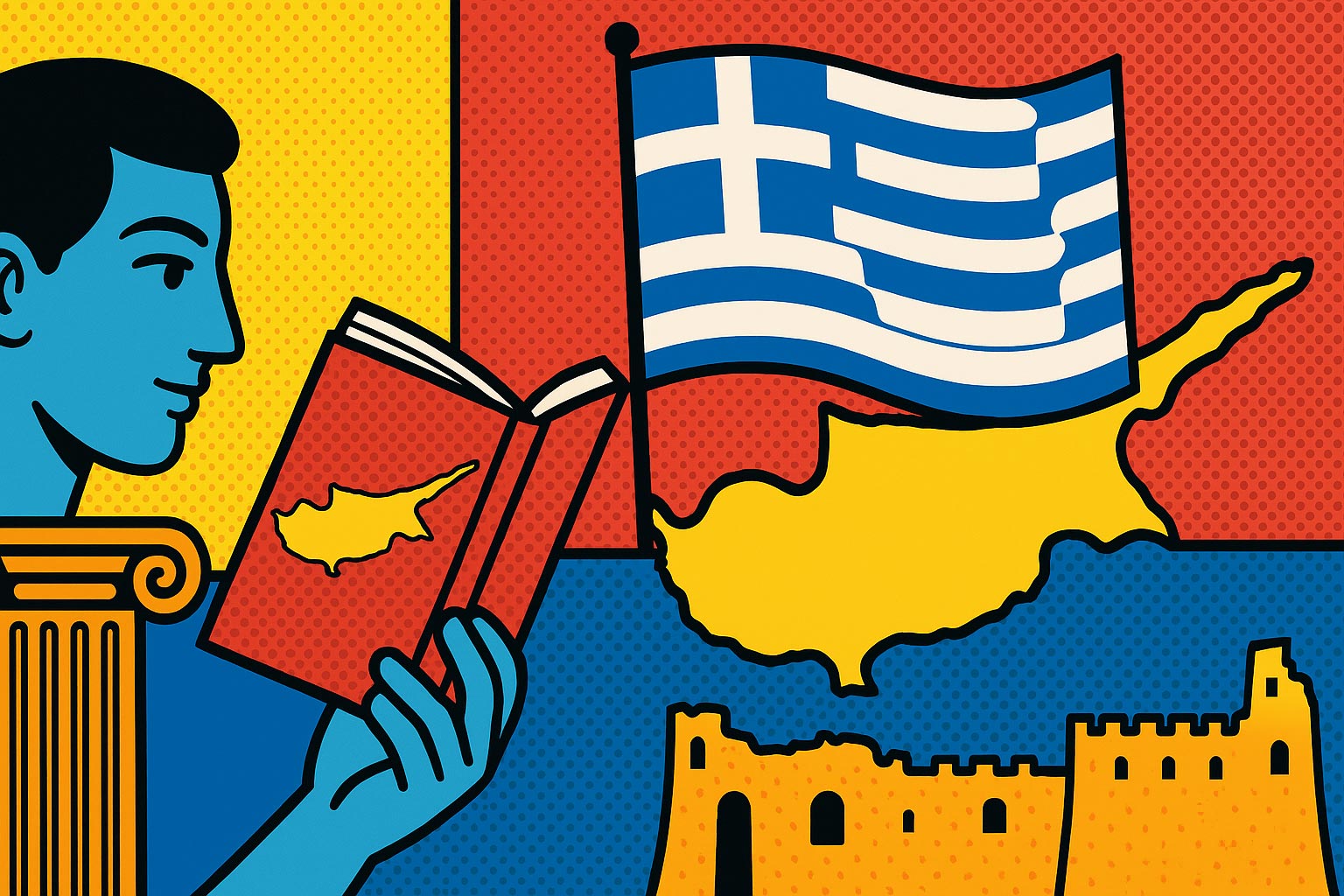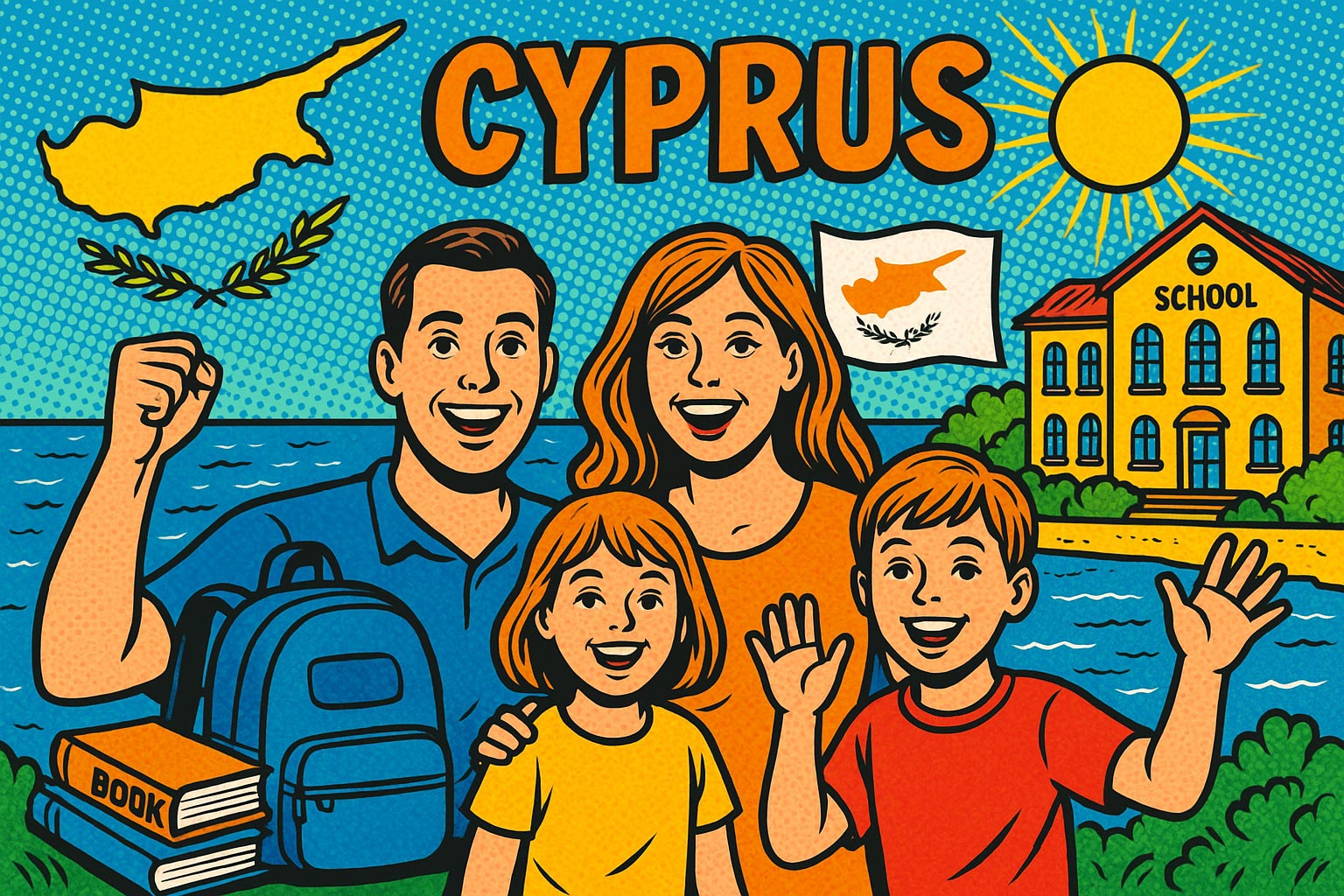- 1. The Language Environment in Cyprus: An Overview
- 2. Why Learn Greek in Cyprus? Benefits for Beginners
- 3. Greek Courses in Limassol: Structure, Options, and What to Expect
- 4. Self-Study Methods: Complementing or Substituting Formal Courses
- 5. The Cypriot Dialect Question: To Learn or Not to Learn?
- 6. Practical Tips for Integration Through Language Learning in Cyprus
- 7. The Future of Learning Greek in Cyprus: Trends and Opportunities
- 8. Embracing the Language Journey: Finding Your Path to Fluency in Cyprus
- 9. Frequently Asked Questions
- 10. Author
Learning Greek in Cyprus offers a unique opportunity for beginners and experienced language learners alike to immerse themselves in both the language and culture of this Mediterranean island. The linguistic landscape of Cyprus presents an intriguing blend of Standard Modern Greek and the distinct Cypriot dialect, sparking questions around the best pathways for learners aiming to integrate and communicate effectively. This article delves into the practical avenues available to those looking to study Greek in Cyprus, including structured courses, self-study methods, and the complexities surrounding the Cypriot dialect basics. With a holistic approach, it will guide you through making informed decisions about how to gain proficiency and truly embrace local life.
The Language Environment in Cyprus: An Overview
Cyprus stands at the crossroads of various historical and linguistic influences. Modern Greek is the official language of the Republic of Cyprus and taught widely in schools, but the everyday spoken language often includes a variation known as the Cypriot dialect. This dialect is markedly different in pronunciation, vocabulary, and syntax from Standard Modern Greek, making it a topic of essential consideration for language learners. Understanding this linguistic environment is foundational when you decide whether to learn Greek in Cyprus as a beginner, enroll in Greek courses in Limassol, or opt for self-study.
Most Greek courses on the island emphasize Standard Modern Greek, the variety used in formal settings, education, and media. However, immersion in local daily life inevitably exposes learners to the Cypriot dialect, offering a rich, authentic experience but also posing a challenge. This dual linguistic reality necessitates clear goals: Are you aiming for broad communication throughout the Greek-speaking world, or do you want to integrate deeply within Cypriot society and understand local nuances?
Deciding whether to focus on Standard Modern Greek or the Cypriot dialect is key to effective learning and deeper integration in Cyprus.
Why Learn Greek in Cyprus? Benefits for Beginners
Choosing Cyprus as a destination to learn Greek holds several advantages, particularly for beginners. Firstly, the island offers a supportive environment where Greek language learners can practice daily, from marketplaces to cafés, accelerating their practical skills beyond classroom instruction. For beginners especially, the opportunity to interface with native speakers promotes an intuitive grasp of conversational Greek.
Additionally, Cyprus hosts a network of language schools and informal clubs, especially in urban centers like Limassol, noted for its vibrant expat community and well-structured Greek courses. The physical presence in Cyprus enables learners to absorb cultural context alongside linguistic rules, something that self-study from afar can seldom replicate.
The island’s relatively relaxed lifestyle and friendly locals encourage interactive learning, creating a less pressured setting than many mainland Greek cities. In Limassol, for example, institutions tailor their programs to learner needs, integrating cultural excursions and practical teaching methods designed to boost retention among beginners.
Learning Greek in Cyprus as a beginner combines language instruction with authentic cultural experiences that foster natural language acquisition.
Greek Courses in Limassol: Structure, Options, and What to Expect
Limassol has become a hub for Greek language education, offering a range of options designed for learners at all levels. Courses here vary from short-term intensive programs to longer-term part-time classes, delivered by professional education providers. These classes frequently emphasize communicative competence, focusing on speaking, listening, reading, and writing skills.
Most Greek courses Limassol offers revolve around Standard Modern Greek to ensure foundational language skills are solid. Classes usually follow a progressive curriculum, taking beginners from alphabet and pronunciation basics to more complex sentence structures and vocabulary. Some schools also provide special modules addressing Cypriot dialect basics to prepare learners for local interactions.
In addition to classroom instruction, many courses include cultural activities such as cooking lessons, traditional dance workshops, and excursions to historic sites. These help contextualize language learning and motivate students by linking words with experiences. Group sizes tend to be small, enhancing interaction and personalized feedback.
| Course Type | Duration | Focus | Typical Class Size |
|---|---|---|---|
| Intensive Greek Course | 4–6 weeks | Fast-paced, full language immersion | 8–12 students |
| Part-Time Evening Classes | 3–6 months | Gradual skill building with flexible scheduling | 10–15 students |
| One-on-One Tutoring | Flexible | Customized learning plan and pacing | 1 student |
Language schools are generally open to foreigners seeking to integrate into Cypriot life, tailoring materials and teaching styles to cater to diverse linguistic backgrounds. The costs of Greek courses in Limassol vary but remain competitive compared to other European language immersion programs, making Cyprus an attractive, cost-effective destination for learners.
Greek courses in Limassol offer structured yet culturally rich learning environments, ideal for beginners aiming to blend formal education with local interaction.
Self-Study Methods: Complementing or Substituting Formal Courses
While enrolling in organized Greek courses is beneficial, self-study remains a crucial component in reinforcing and expanding language skills. Many learners choose to balance formal lessons with independent study, which allows for more flexibility and targeted practice. Self-study resources are abundant, from textbooks and online platforms to mobile apps and audio exercises.
For those who want to learn Greek in Cyprus independently or before arriving, starting with self-study can lay a groundwork of essential vocabulary and grammar. This preparation significantly eases the initial shock of immersion and makes course participation more productive. For learners already enrolled in courses, self-study acts as a valuable supplement to help solidify concepts and maintain progress between lessons.
One challenge for self-learners, however, is exposure to authentic spoken Greek, especially the Cypriot dialect basics that are less commonly addressed in generic language apps. To compensate, learners can engage with media produced in Cyprus, such as local radio, TV shows, podcasts, and community events. These sources offer insight into everyday language usage, intonation, and expressions that formal study materials might overlook.
Integrating self-study with daily conversations and practical activities ensures steady language improvement and encourages active learning habits. Self-discipline, clear goals, and regular practice are essential for self-study success, particularly because Greek grammar and pronunciation can be demanding for beginners.
Self-study is a vital complement to courses, offering flexibility and personalized focus, but requires deliberate practice to master Greek efficiently.
The Cypriot Dialect Question: To Learn or Not to Learn?
A significant linguistic consideration for anyone who wants to study Greek in Cyprus is whether to invest time in learning the Cypriot dialect or concentrate on Standard Modern Greek. The Cypriot dialect is deeply embedded in local culture and daily communication, especially in rural areas and among older generations. It features unique phonetic shifts, vocabulary, and idiomatic expressions that distinguish it sharply from the standard form.
For many beginners, beginning with Standard Modern Greek is advisable to build a solid, portable foundation. This facilitates communication beyond Cyprus and access to wider Greek media and literature. However, the dialect cannot be ignored if the goal is full social integration and authentic immersion within Cypriot communities. Understanding the Cypriot dialect basics enables learners to navigate informal situations, appreciate humor, and connect more profoundly with locals.
That said, the dialect can present a steep learning curve due to its divergence from the textbook version of Greek. Most language schools in Cyprus focus on teaching Standard Modern Greek first, sometimes supplementing with dialectal insights once learners reach intermediate levels. Learners should also recognize that Cypriot Greek is less standardized in writing, mainly existing as a spoken vernacular, which complicates formal study.
Some language programs or tutors offer specialized courses dealing with the dialect, focusing on pronunciation, local phrases, and colloquialisms. Participation in community events and informal practice with native speakers is often the best way to get comfortable with Cypriot Greek in situ. The decision to prioritize the dialect depends heavily on learners’ personal goals, the context of usage, and desired level of cultural integration.
Balancing Standard Greek with the Cypriot dialect is crucial for meaningful communication and social integration in Cyprus.
Practical Tips for Integration Through Language Learning in Cyprus
Language acquisition in Cyprus is not merely an academic exercise but a gateway to integration. Successful learners find that active engagement with the community enhances their linguistic progress and cultural understanding. Simple gestures like speaking Greek during daily shopping, using public transportation, or joining local interest groups can vastly improve language skills and social bonds.
Integration also requires overcoming challenges such as initial embarrassment, dialect comprehension issues, and occasional gaps between classroom learning and real-life language usage. Patience and persistence, combined with openness to mistakes and feedback, foster confidence. Cypriots are generally encouraging of learners and appreciative when foreigners attempt to communicate in their language, which smooths the path towards meaningful exchanges.
For expatriates, participating in language exchanges or volunteering with community organizations offers practical contexts to apply skills gained in Greek courses or self-study. Moreover, ongoing contact with native speakers reduces dependency on translation tools and builds intuitive language responses.
Professionals and students who prioritize integration often pursue supplementary cultural education alongside language study, such as learning about Cypriot history, cuisine, and social norms. This holistic approach enriches communication beyond words, allowing learners to grasp implicit cultural references and nonverbal cues.
Active community participation is the cornerstone of mastering Greek and achieving authentic integration in Cyprus.
The Future of Learning Greek in Cyprus: Trends and Opportunities
The demand for learning Greek in Cyprus continues to grow fueled by tourism, international relocations, and academic exchanges. Language schools are increasingly incorporating digital tools, hybrid learning models, and culturally immersive techniques to meet diverse learner needs. Technological advances like virtual classrooms and AI-powered tutors expand access and personalize study paths.
Alongside traditional methods, mobile applications tailored to Cypriot Greek show promise for bridging the gap between Standard Greek learning and dialect fluency. Platforms offering interactive conversation simulations, dialect coaching, and cultural modules allow learners to customize their experience according to proficiency and interest.
Given Cyprus’s geopolitical position and vibrant multicultural society, bilingualism and multilingualism are valuable professional assets. Effective Greek language skills open doors in sectors such as tourism, education, and international business. As a result, government and private institutions support language integration initiatives that facilitate smoother transitions for newcomers.
Overall, Cyprus remains a dynamic and hospitable environment for aspiring learners. The synergy between structured Greek courses, motivated self-study, and cultural immersion makes mastering Greek attainable and rewarding for all committed students.
Emerging technologies and evolving teaching approaches are transforming how learners engage with Greek language and culture in Cyprus.
Embracing the Language Journey: Finding Your Path to Fluency in Cyprus
Whether you are beginning your Greek language journey or considering how to deepen your skills, Cyprus offers a fertile ground for learning, practice, and integration. The island’s linguistic duality challenges learners to make strategic choices about the balance between Standard Modern Greek and the Cypriot dialect. Structured courses in places like Limassol provide solid foundations, while self-study and community interaction foster ongoing development.
Ultimately, learning Greek in Cyprus is about more than grammar and vocabulary; it is a process of connecting with a living culture, discovering new perspectives, and opening doors to meaningful relationships. Pursuing this journey requires commitment, adaptability, and curiosity, but the rewards are profound: fluency that bridges worlds and a sense of belonging within a welcoming, complex society.
As you decide your learning route, remember that every effort to speak and understand Greek is a step toward integration and enriching your Cypriot experience. Whether you embrace the Cypriot dialect or build from Standard Greek, the language you acquire will be your greatest asset in unlocking the heart of Cyprus.
Frequently Asked Questions
- Can beginners effectively learn Greek in Cyprus without prior knowledge?
Yes, many language schools in Cyprus, particularly in Limassol, offer courses tailored specifically for beginners, providing a supportive environment to develop foundational skills. - Is it necessary to learn the Cypriot dialect when studying Greek in Cyprus?
It’s not necessary for general communication, as Standard Modern Greek is widely understood, but learning Cypriot dialect basics is beneficial for deeper local integration and understanding everyday conversation. - What are the advantages of taking Greek courses in Limassol versus self-study?
Greek courses offer structured lessons, expert feedback, and cultural immersion, while self-study provides flexibility. Combining both methods is often the most effective approach. - How can I practice listening and speaking skills in Greek outside the classroom?
Engage with local media, join language exchange groups, attend community events, and converse with native speakers to build practical language skills. - Are online resources reliable for learning Greek and the Cypriot dialect?
Many online platforms effectively teach Standard Modern Greek, but fewer cover the Cypriot dialect comprehensively; combining digital resources with real-world interaction is recommended. - How long does it typically take to reach conversational fluency in Greek while living in Cyprus?
With consistent study and immersion, beginners can expect conversational fluency within six months to a year, depending on effort and learning approach. - Can learning Greek in Cyprus help with professional opportunities?
Absolutely. Greek proficiency opens opportunities in tourism, education, business, and public services throughout Cyprus and the broader Greek-speaking world.


